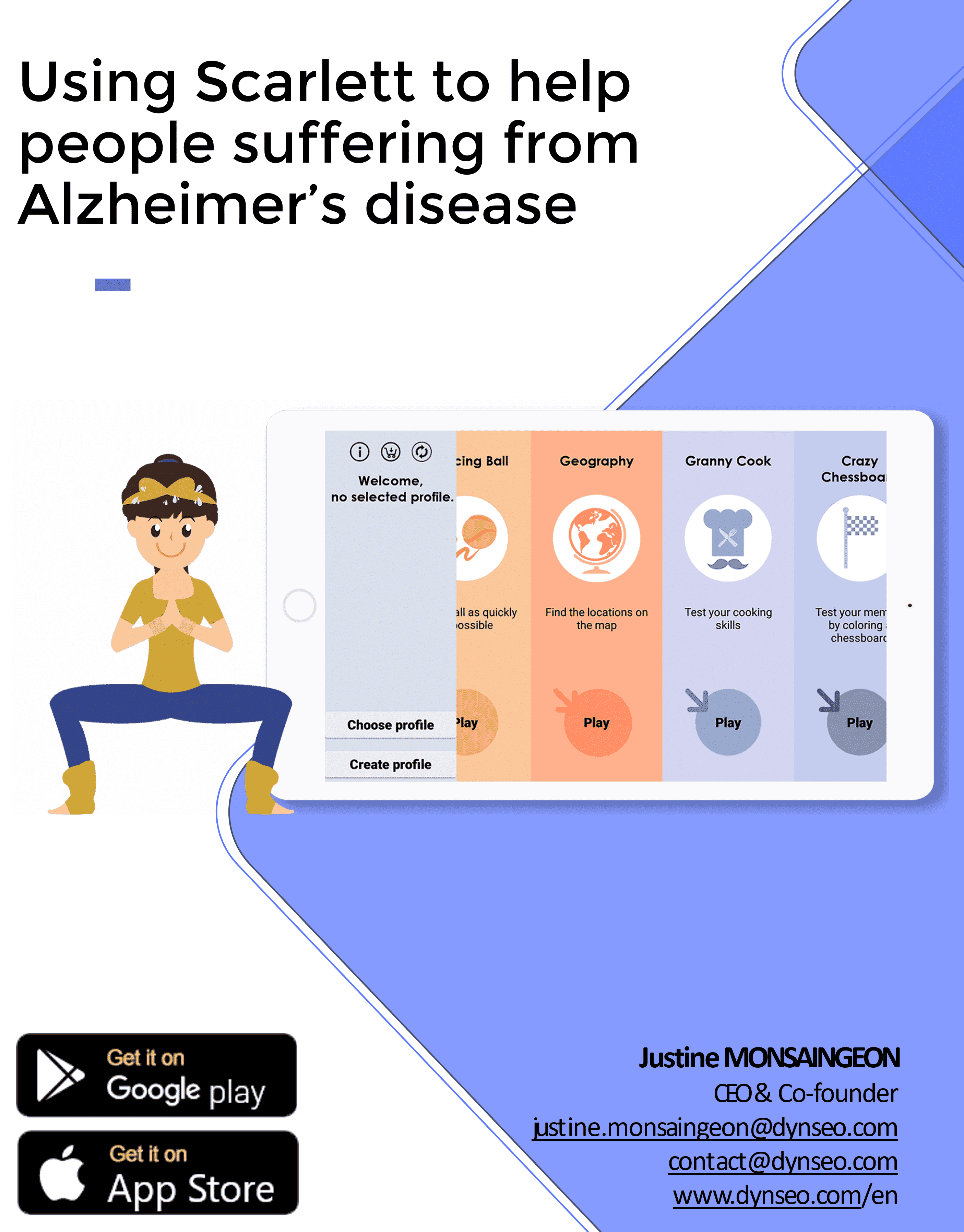Alzheimer’s disease profoundly affects various cognitive functions, particularly speech and memory. As we navigate through the complexities of this condition, we come to realize that the gradual decline in memory can lead to significant challenges in communication. Patients often struggle to find the right words, leading to frustration and isolation.
This breakdown in communication not only affects the individual but also impacts their loved ones, who may find it increasingly difficult to connect with them. The emotional toll of these changes can be overwhelming, as we witness our friends and family members retreat into a world where they feel misunderstood and unheard. The loss of memory can manifest in various ways, from forgetting names and faces to losing track of conversations, making it essential for us to understand the nuances of these changes.
Moreover, the impact of Alzheimer’s on memory extends beyond mere forgetfulness; it alters the very fabric of a person’s identity. As memories fade, so too do the stories and experiences that shape who we are. This can lead to a sense of loss not only for the patient but also for those around them.
We often find ourselves reminiscing about shared moments that now seem distant or unreachable. The challenge lies in finding ways to bridge this gap, to create new connections that honor the past while fostering engagement in the present. Understanding these dynamics is crucial as we seek to support those affected by Alzheimer’s, ensuring that they feel valued and included despite the cognitive challenges they face.
The Role of Speech Therapists in Supporting Alzheimer’s Patients
The Role of Speech Therapists in Supporting Individuals with Alzheimer’s
Speech therapists play a vital role in supporting individuals with Alzheimer’s disease, acting as guides through the complex communication difficulties that arise from this condition. They employ a variety of strategies tailored to each patient’s unique needs, focusing on enhancing their ability to express themselves and comprehend language.
Strategies for Enhancing Communication and Preserving Language Skills
By utilizing techniques such as reminiscence therapy, which encourages patients to recall past experiences, speech therapists help stimulate memory and foster meaningful conversations. This approach not only aids in preserving language skills but also strengthens emotional connections between patients and their caregivers or family members.
Empowering Families and Caregivers through Education and Support
In addition to direct communication strategies, speech therapists also educate families about the nature of Alzheimer’s and its impact on speech and language. They provide valuable insights into how to engage with loved ones effectively, emphasizing patience and understanding. By equipping families with tools and techniques to facilitate communication, speech therapists empower us to create an environment where our loved ones feel safe and supported.
Creating a Supportive Community for Individuals with Alzheimer’s
This collaborative approach fosters a sense of community, reminding us that we are not alone in this journey. Together, we can navigate the challenges posed by Alzheimer’s, ensuring that our loved ones continue to feel heard and valued.
Introduction to Memory Apps for Alzheimer’s Patients

As technology continues to evolve, innovative solutions have emerged to support individuals with Alzheimer’s disease, particularly in the realm of memory enhancement. Memory apps designed specifically for seniors offer a unique opportunity to engage patients in cognitive exercises that stimulate their minds while providing a sense of accomplishment. These applications often feature a variety of games and activities aimed at improving memory recall, attention, and problem-solving skills.
By integrating these tools into daily routines, we can help our loved ones maintain cognitive function and enhance their overall quality of life. One such app is Scarlett, which is tailored for seniors and focuses on brain games that promote mental agility. With its user-friendly interface and engaging content, Scarlett encourages users to participate in activities that challenge their cognitive abilities while remaining enjoyable.
The app’s design takes into account the specific needs of Alzheimer’s patients, offering a gentle yet effective way to stimulate memory and communication skills. As we explore these technological advancements, we find ourselves hopeful for the potential they hold in transforming the way we support individuals living with Alzheimer’s.
How Memory Apps Can Enhance Speech Therapy for Alzheimer’s Patients
Integrating memory apps into speech therapy sessions can significantly enhance the effectiveness of traditional therapeutic approaches for Alzheimer’s patients. These applications provide an interactive platform that encourages engagement and participation, making therapy sessions more dynamic and enjoyable. By incorporating games and exercises that focus on language skills, memory recall, and cognitive flexibility, we can create a holistic approach that addresses multiple aspects of communication challenges faced by our loved ones.
This synergy between technology and therapy allows us to tap into the strengths of both modalities, fostering an environment conducive to learning and growth. Furthermore, memory apps can serve as valuable tools for reinforcing concepts introduced during therapy sessions. For instance, after practicing specific vocabulary or phrases during a session, we can encourage patients to use the app at home to reinforce their learning.
This continuity helps solidify their understanding while providing opportunities for practice in a low-pressure setting. As we witness our loved ones engage with these apps, we often see renewed motivation and enthusiasm for communication, which can be incredibly rewarding for both patients and caregivers alike. By embracing technology as an ally in speech therapy, we open new avenues for connection and expression.
Choosing the Right Memory App for Individual Patients
Selecting the appropriate memory app for an individual patient requires careful consideration of their unique needs and preferences. Each person with Alzheimer’s has different cognitive abilities, interests, and levels of comfort with technology. As we embark on this journey of exploration, it is essential to assess what features will resonate most with our loved ones.
For instance, some may prefer visually stimulating games that incorporate familiar images or themes from their past, while others might benefit from more straightforward tasks focused on word recall or problem-solving. Additionally, it is crucial to consider the user-friendliness of the app interface. Many seniors may feel overwhelmed by complex navigation or intricate designs; therefore, opting for an app like Scarlett that prioritizes simplicity can make a significant difference in their experience.
We should also take into account any feedback from our loved ones regarding their enjoyment or frustration with specific activities within the app. By actively involving them in the selection process, we empower them to take ownership of their cognitive engagement while ensuring that the chosen app aligns with their interests and abilities.
Implementing Memory Apps in Speech Therapy Sessions

Incorporating memory apps into speech therapy sessions requires thoughtful planning and execution to maximize their benefits for Alzheimer’s patients. As we begin this integration process, it is essential to establish clear objectives for each session, identifying specific skills or areas of focus that align with the patient’s therapeutic goals. For example, if a patient struggles with word retrieval, we might select activities within the app that emphasize vocabulary building or sentence formation.
By aligning app usage with targeted therapeutic outcomes, we create a cohesive experience that reinforces learning. Moreover, it is important to maintain a balance between structured activities and open-ended exploration within therapy sessions. While guided exercises using memory apps can provide valuable structure, allowing patients to explore different features at their own pace fosters a sense of autonomy and enjoyment.
We should encourage our loved ones to express their preferences regarding which games or activities they find most engaging, creating an atmosphere where they feel empowered to participate actively in their therapy journey. This collaborative approach not only enhances motivation but also strengthens the therapeutic alliance between patients and therapists.
Monitoring Progress and Adjusting Memory App Usage
As we implement memory apps into speech therapy sessions for Alzheimer’s patients, ongoing monitoring of progress becomes essential in ensuring that these tools remain effective over time. Regular assessments allow us to gauge improvements in communication skills, memory recall, and overall cognitive function. By tracking changes in performance within the app—such as increased accuracy in completing tasks or improved response times—we can gain valuable insights into how well our loved ones are benefiting from this technology.
Additionally, it is crucial to remain flexible in our approach by adjusting app usage based on observed progress or challenges faced by patients. If certain activities prove too difficult or frustrating, we should be prepared to modify our strategy by selecting alternative exercises or adjusting difficulty levels within the app. This adaptability not only enhances engagement but also reinforces our commitment to meeting individual needs as they evolve over time.
By fostering an environment of continuous improvement and support, we empower our loved ones to thrive despite the challenges posed by Alzheimer’s.
The Future of Memory Apps in Speech Therapy for Alzheimer’s Patients
Looking ahead, the future of memory apps in speech therapy for Alzheimer’s patients appears promising as technology continues to advance at an unprecedented pace. Innovations such as artificial intelligence and machine learning hold great potential for creating personalized experiences tailored specifically to each patient’s cognitive profile. As these technologies evolve, we may see apps that adapt in real-time based on user performance—offering customized challenges that align with individual strengths while addressing areas needing improvement.
Moreover, as awareness grows regarding the importance of cognitive health among seniors, we anticipate an increase in research focused on evaluating the efficacy of memory apps within therapeutic contexts. This research will provide valuable insights into best practices for integrating technology into speech therapy while ensuring that interventions remain evidence-based and effective. As we embrace these advancements together with our loved ones living with Alzheimer’s disease, we remain hopeful for a future where technology serves as a powerful ally in enhancing communication skills and enriching lives through meaningful connections.
For those interested in exploring how speech therapists can enhance their support for Alzheimer’s patients using technology, a related article worth reading discusses the use of playful activities to stimulate memory in speech therapy patients. This article provides insights into various engaging methods that can be beneficial in memory stimulation, which is crucial for Alzheimer’s patients. You can read more about these innovative approaches by visiting Playful Activities to Stimulate Memory in Speech Therapy Patients. This resource is particularly useful for therapists seeking to incorporate more dynamic and effective tools into their practice.



